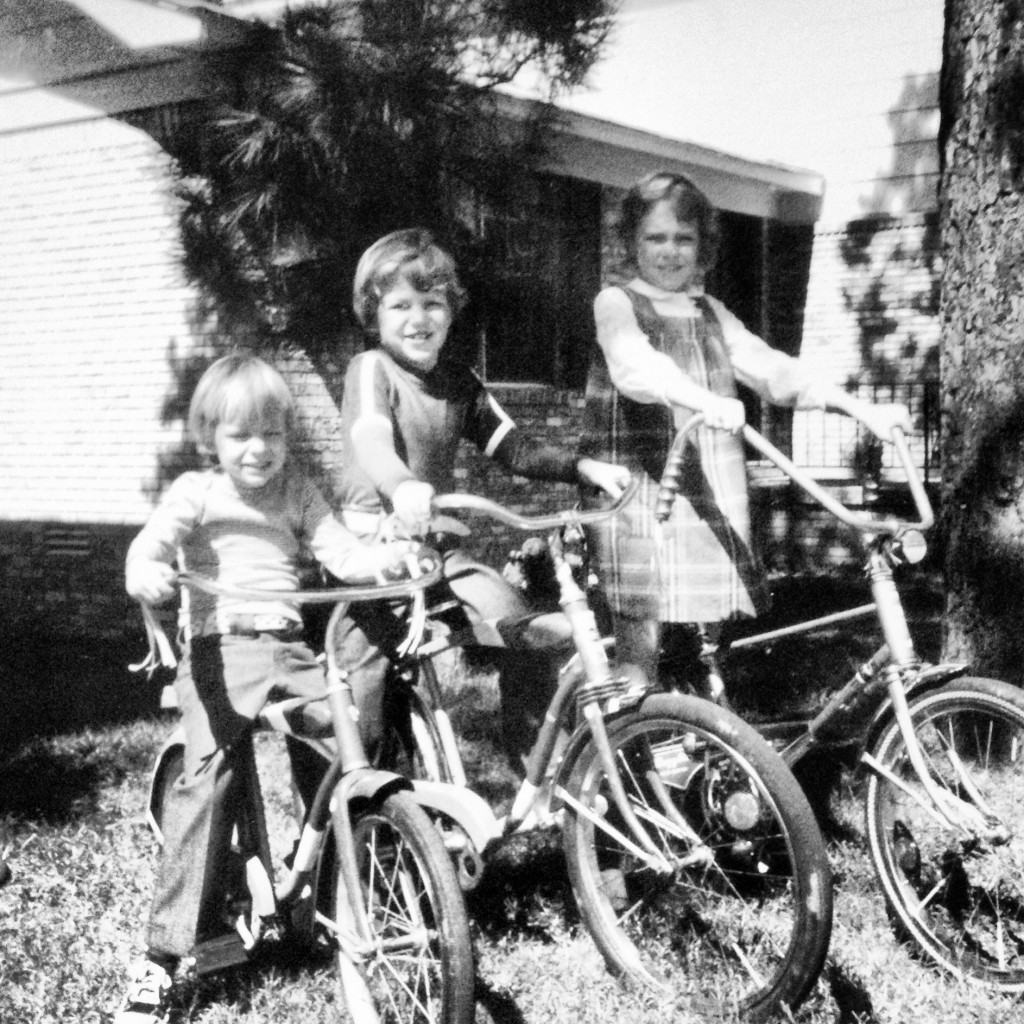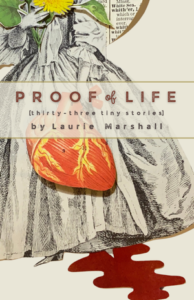I’m sure I’m not alone when I say that when I was young, if the sun was shining, I was outside. I was fortunate to have a mother who encouraged us to play and explore and take responsibility for our own entertainment. It seems amazing today, as I think back, that she would allow me to run around with a handful of other kids for hours at a time without really knowing where we were or what we were doing. I suspect she was more aware than I knew she was at the time, but it seemed like we were untethered and unattended. And you know what? It was awesome!
Mom grew up in Fayetteville, Arkansas when there were only 17,000-ish people living there. She lived in the south part of town, near the original airport for the region, and told me about spending hours on the hillside north of the air field watching the planes coming and going. If you ever drive south on Highway 71 out of town, keep an eye out for Whillock Street – it was named after my mom’s family.
I was listening to NPR today when Hannah Rosin, who just had an article published in The Atlantic yesterday, was being interviewed about the topic of overprotected kids. (You can read her piece here.) One of the points that really piqued my interest was that children of my generation were generally allowed to take risks, whereas our own children are not. They are discouraged from taking risks in their play, redirected and intercepted when friendships become difficult, and generally insulated against anything that could cause injury either to their bodies or their fragile self-esteem.
This discussion opened up a floodgate of memories for me…

Now, I’m not saying that bike helmets and anti-bullying campaigns are a bad ideas, per se. But think back a bit… what was it that you did as a kid that made you feel strong, confident, and capable? I’m pretty sure that whatever it was, you probably weren’t wearing elbow pads. The idea that our kids are overprotected just rung so true for me.
My most Kodachrome memories were made on Keltwood Cove, in Little Rock. We lived in a neighborhood that was not brand new – I think we were the 2nd owners of our house – but there were streets that were still being developed, tentacling out into the pine woods along Kanis Road. The green space behind our house that buffered our yard from the traffic on John Barrow Road was full of trees, and overgrown fields were littered with sheets of plywood and concrete blocks left over from neighborhood construction projects. FORT-BUILDING CENTRAL!!!
I remember one time in particular, when I and four or five other neighbor kids were building and rebuilding a fort in a little stand of trees. We created the walls by propping up plywood sheets, then put pine branches across the tops of them, with concrete blocks strategically placed on top of the branches to hold them in place.
Now… if I was hovering over my son as he and his friends built this fort, I would most assuredly suggest to him that placing concrete blocks atop a swath of pine branches was not the best idea. I mean, the physics of gravity, combined with the instability of heavy things placed atop flimsy things, and reinforced with the architectural skills of 7-10 year olds… just not a great idea.
But there was not a parent to be found that day. And as it turned out, I didn’t need a parent around to tell me it wasn’t a good idea to put concrete blocks on top of pine branches, because the fort collapsed on top of me. The walls caved in, concrete blocks fell on top of me (buffered by pine branches!) and a collective moan went up from the assembly. I crawled out from under the pile of rubble, and we started over. Lesson learned.
The thing is, there is inherent risk in just getting out of bed every day. I agree with the suggestion made by Ms. Rosin that kids today may not be growing up in a manner conducive to the development of creative, experienced adults adept at problem-solving and who know their limitations. I’m not saying we should turn our kids out on the street all afternoon with a water bottle and a note pinned to their shirt (just in case), but I do wonder whether I am encouraging my son to make decisions for himself and allowing him to work through challenges. His father and I tell him that he needs to “make good choices”, but if we are always right behind him when he has a challenge with a friend, or is not sure if he is making the right choice, how will he learn to be confident in the choices he does make? Perhaps more important – how will he learn the consequences of the wrong choices?
Another experience I had on Keltwood Cove involved our old-school metal swing set and one particular dare-devil kid who loved to do “cherry bombs”. For the uninitiated, a cherry bomb was what we called an acrobatic stunt that lunatics brave kids performed that involved swinging by one’s knees, upside down, from the top of the swing set, until enough momentum was developed to allow the individual to flip off the swing set and land on one’s feet. Ta-daaaaa!
This was one risk that I was no where near interested in taking. I was egged on. I was teased. I was told that I was a chicken. But I also knew that I didn’t enjoy pain. I was fairly happy with the look of my eight-year-old face. I was good on the ground, thanks. And my mom didn’t have to tell me those things.
Ironically, I watched my generation’s transformed parenting styles in action this evening. As my husband and I walked out of a restaurant after dinner, we spotted our nine-year-old just stepping off the curb to cross the parking lot to our car. My husband yelled at him to stop, and gave him the standard “you don’t go running off without us… danger… cars… death… yaddayadda.” My son assured us that he did look for cars, as he’s been taught to do since he was big enough to walk, and I’m sure he did. So why isn’t that enough? We teach our children to be safe, we instruct them on the things they need to do to minimize risk in their daily routines – look both ways, don’t play with matches, don’t talk to strangers, don’t run with scissors, etc… but when do we start trusting them to learn and act on the things we are teaching? Do they need to learn a few of these lessons the hard way?
So, what are our children learning from all this protection we are providing? If they are not allowed to make decisions for themselves and learn from their mistakes, when will those lessons be learned? A poll of parents at a playground would most certainly find that the majority would not drop their children off at there to be left unsupervised. In fact, most would probably not allow their children to play alone outside at home either, unless they are in a fenced backyard. To be sure, they are protected from the statistical anomaly that is stranger abduction, but are they becoming the confident, self-sufficient, fully realized people we want them to be?
I’m sure there is a balance to be struck here somewhere. A way to raise children who think for themselves and are prepared to evaluate situational risk vs. benefit. I appreciate writers like Ms. Rosin who ask these questions and keep me on my parental toes. And as we continue our search for a new house, I will definitely be leaning toward properties with some great fort-building potential.






Amen! I don’t endorse bullying, but being bullied as a kid helped me learn compassion and strength as an adult. I also agree that kids can’t learn how to be grown ups if we don’t let them figure some stuff out.
Agreed, Jamie – I don’t believe bullying should be tolerated, but difficult relationships and uncomfortable cliques and being left out of groups and such… we as parents shouldn’t try to mitigate those negative emotional situations. I was never an insider either, and it was okay. I learned to be pretty happy on the fringes. :)